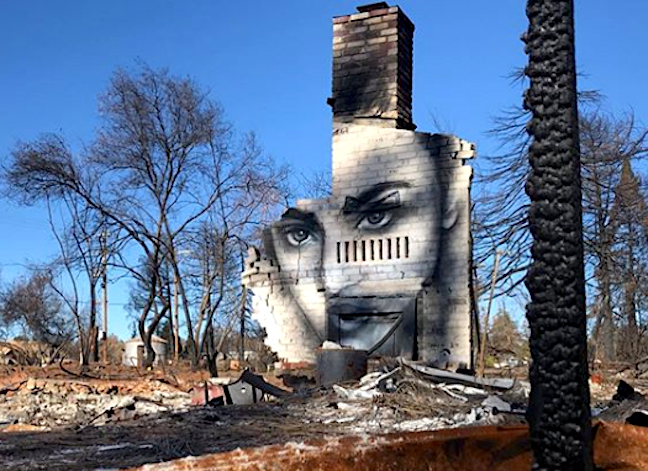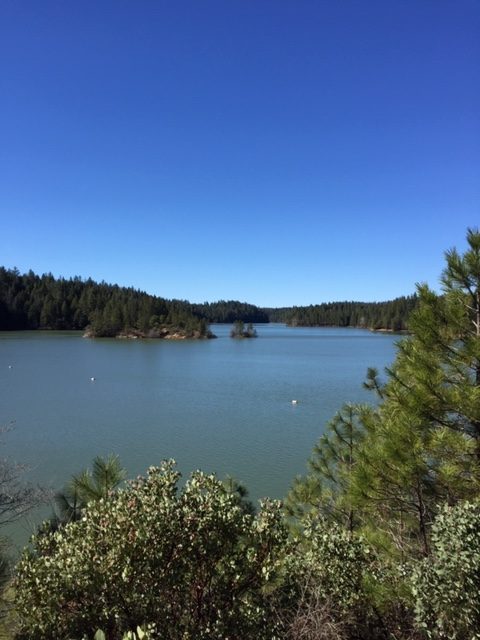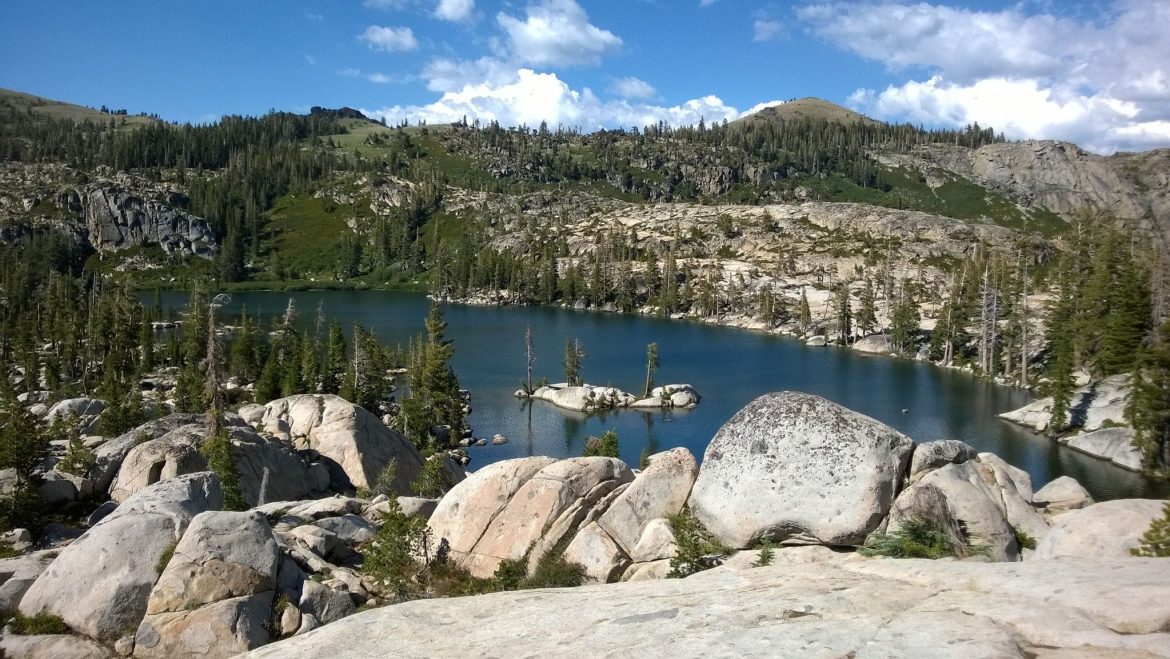Four months after the misnomer of the “Camp Fire,” the devastation in Paradise was worse than I’d imagined. Like death, nothing prepares you for it. Though only 15 minutes away, I put off going up there as long as I could. Yesterday I drove through the town to my previous favorite meditation place in the area, Paradise Lake.
We passed hundreds of fire-gutted homes and businesses, many empty lots with only a chimney standing on them, and hundreds of cars, half-flattened and sitting on rims, already rusting from the heavy winter rains.
Look in one direction, you’d see an above ground pool with nothing around it. Look in another direction, and there was a crumpled child’s swing set.
There were countless burned and downed trees, evergreens and deciduous, many cut down and lying in sections, many more waiting for the chainsaws.

It was too much to take in no matter how slowly you drove. In fact, the more slowly you drove, the harder it was to take in. Perhaps this is why the vast majority of people now operate at hyper-speed in the society—to slow down is to be overwhelmed by the scale of the social and psychological devastation.
Signs were plastered or posted in many places: “Hope Is Rising.” Signs for realtors selling property were all over the place, and it looked like a few small, pre-fabricated housing projects had already been built.
Workers were all over, mostly still restoring infrastructure. They were all men; I didn’t see a woman on any crew. Paradise was a beehive of activity, but there was a hollow feeling.
It seemed like only banks and churches were left standing. Around the banks you had the feeling the hustle was on. Americans were doing what they do best—building towns and hustling for money. Just like the Old West, only this time rather than displace or wipe out indigenous people, a man-made conflagration wiped the slate clean for the build and hustle.
We drove through the destroyed town, past the foundations of million-dollar homes overlooking the ridges (half of which firefighters had saved), and on to Paradise Lake. It’s only a half hour from outskirts of Chico, and I often went there for a meditation. It’s the quietest place outside of the wilderness I’ve even experienced.
We didn’t know what we would find. There were conflicting reports of how much of the surrounding forest the wildfire had destroyed around the little man-made lake that provided water for Paradise.
All the trees on both sides of the two-mile access road were down or scorched, but when as we reached the dam, a scene of untouched beauty greeted us. There was no sign of the fire, and the reservoir was full to the brim. We drove in and parked.

The place looked the same, but was hauntingly empty. Walking down to the reservoir, we soon realized that the environs were not as unscathed as first appeared.
Along the dirt fire lane that served as a hiking and biking path, you could see that the fire had come down the south side of the lake all the way to the water’s edge. Looking up the steep hillside from the narrow dirt road, the forest was thin, and the ground bare.
Some trees were undamaged and others burned. There were signs the fire had been fought and stopped here.
My usual meditation spot was charred and almost unrecognizable, but I clambered down the bank and sat at the water’s edge alone. The water was green and murky, but it didn’t appear overly fouled from runoff and debris.
It was windy, and the little lake was slightly choppy. All you could hear was the wind through the trees across the inlet on the other side, untouched by fire.
I looked out over intact woodland in three directions.
After an hour, the fire and the devastation one had driven through receded as the mind-as-thought grew still at the same time the wind died down and the lake grew calm. A single merganser paddled by, with its distinctive brown crest and understated quack.
Even without wind, there was almost no sound of man. Miles away, I heard a chainsaw, then a truck, and then a dog bark. That was it. It was so quiet I found myself holding my breath for a few seconds at a time.
The place was still an Arecibo for the cosmic mind to the human being who listens and completely quiets his or her brain in undirected attention. The ‘feeling’ of a benediction came, and with it a sense of holiness.
Walking back to where we parked, I learned that the caretaker had told my friend that the lake was closed. A sign had been erected: “Lake Closed To All Uses. No Trespassing.”
Clearly, we were meant to be there. But I was left with the question: Why do we humans have to go through hell in this life to hear the silences of heavens?
Martin LeFevre
Lefevremartin77 at gmail.com
Fountainoflight.net

